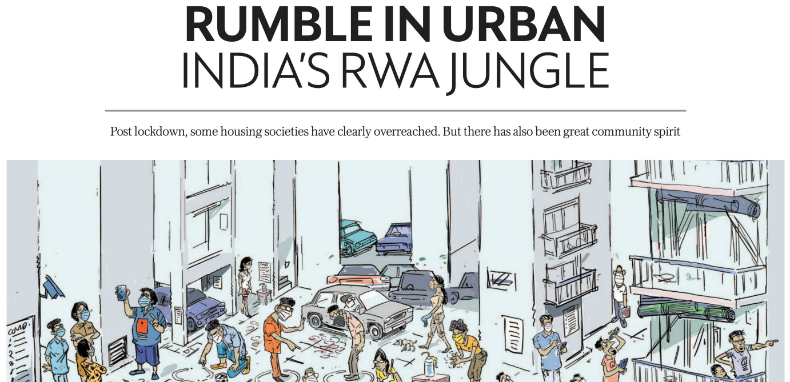
We had the yummiest grapes yesterday! They were huge red seedless grapes with a lot of flesh and pretty sweet too! Where did we buy it from?
E-commerce stores online? Nope.
Neighborhood kirana stores? No!
They were delivered to our home through a truck. The grapes owner dealt directly with our apartment’s Resident Welfare Association (RWA), got the RWA members to do the order management (on WhatsApp) to gauge interest and once he was sure that there would be adequate sales possibility, he landed up with his stock. Most of us bought 2kgs (at Rs.70 per kg).

A couple of days ago, it was musk melons delivered the same way. Next week, it is going to be mangoes!
This COVID-19 pandemic has opened up a new sales channel for sellers of assorted products. It’s not just neighborhood farmers who are looking at this direct-to-consumer-via-RWA channel. The bigger brands too are looking at RWAs!
I noticed Del Monte talking about it as an official channel.
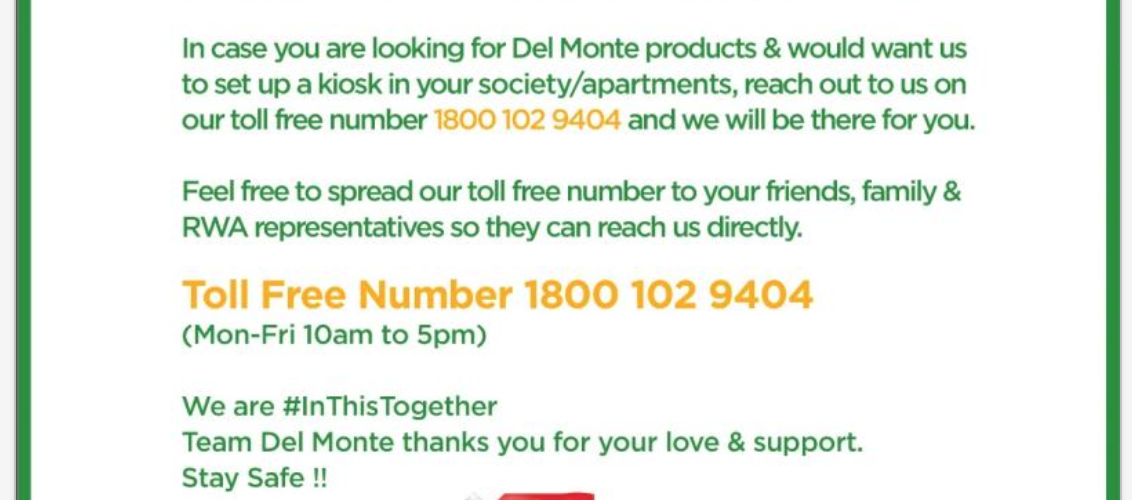
Metro Cash & Carry and Spencer’s are doing it too!
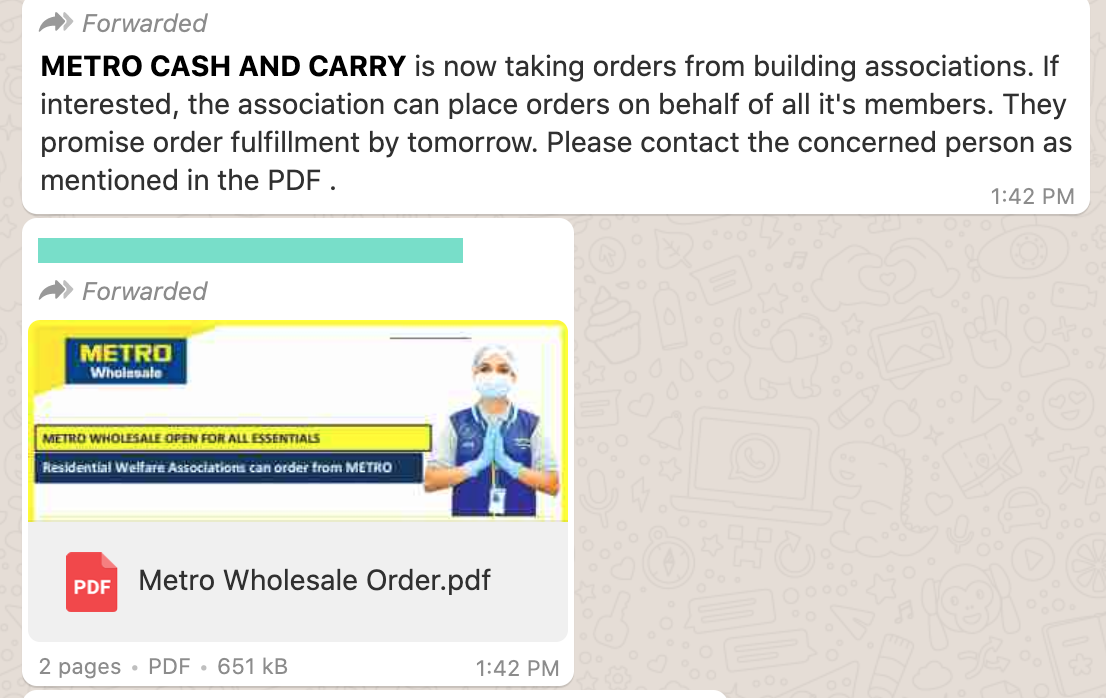
Livemint carried an entire long story () on the heightened attention to and role of RWAs during the pandemic, but that was more about their overreach than their use as a sales channel.
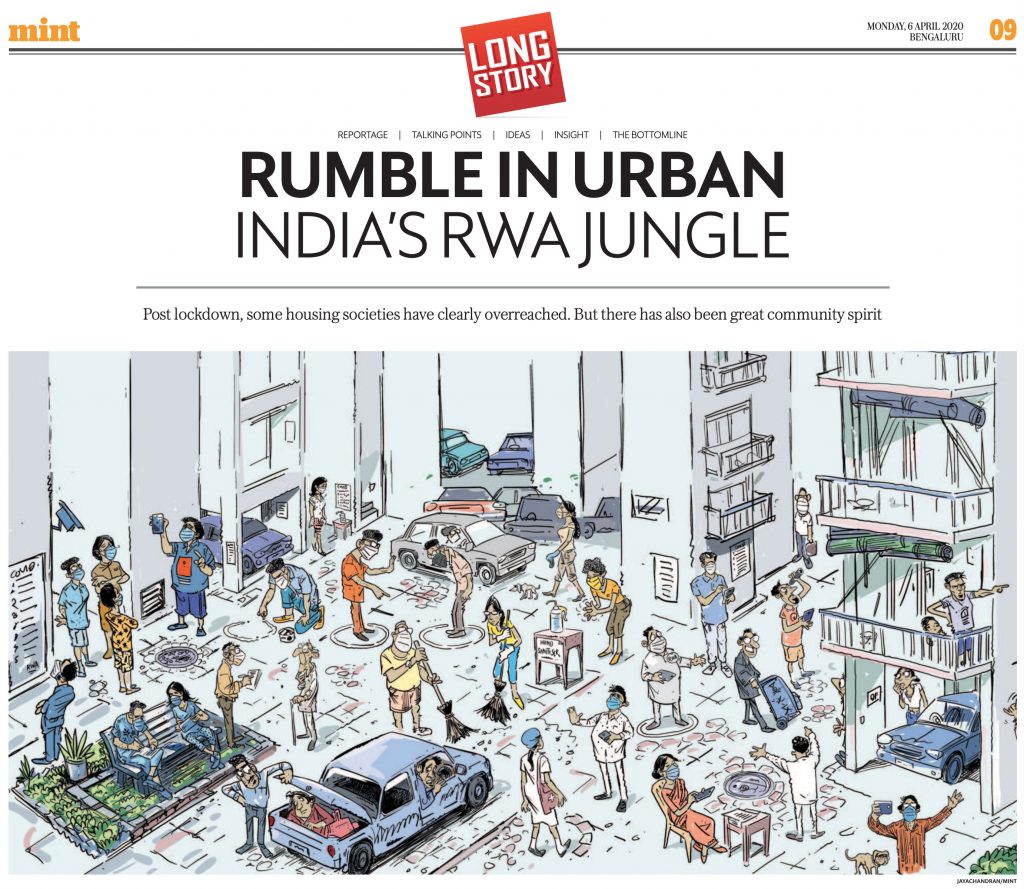
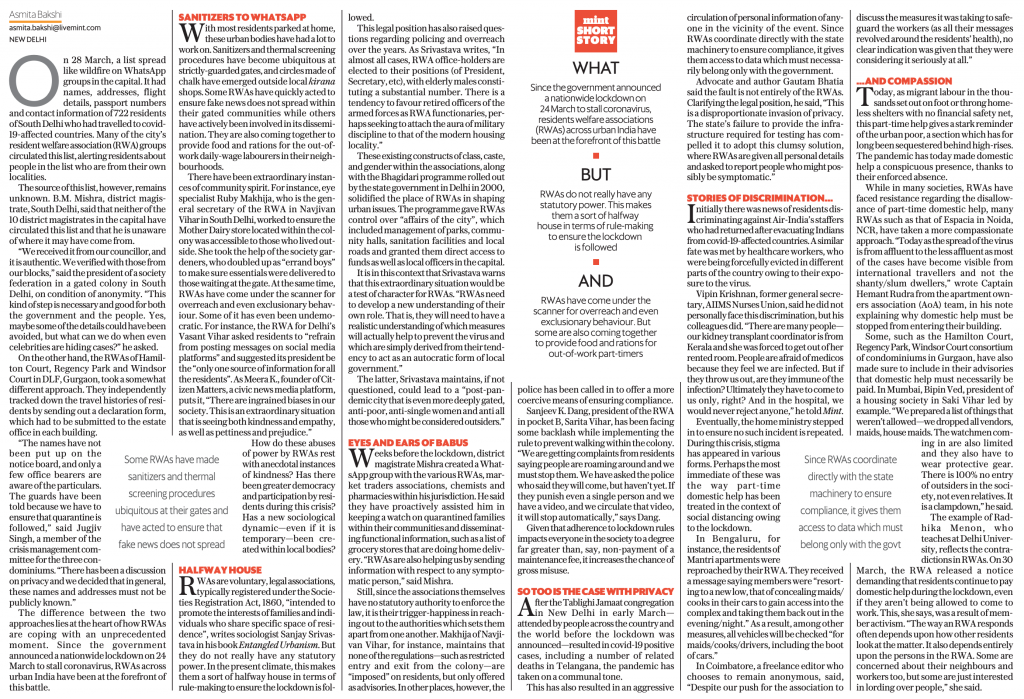
The Economic Times did cover this new avenue on April 1, though ().
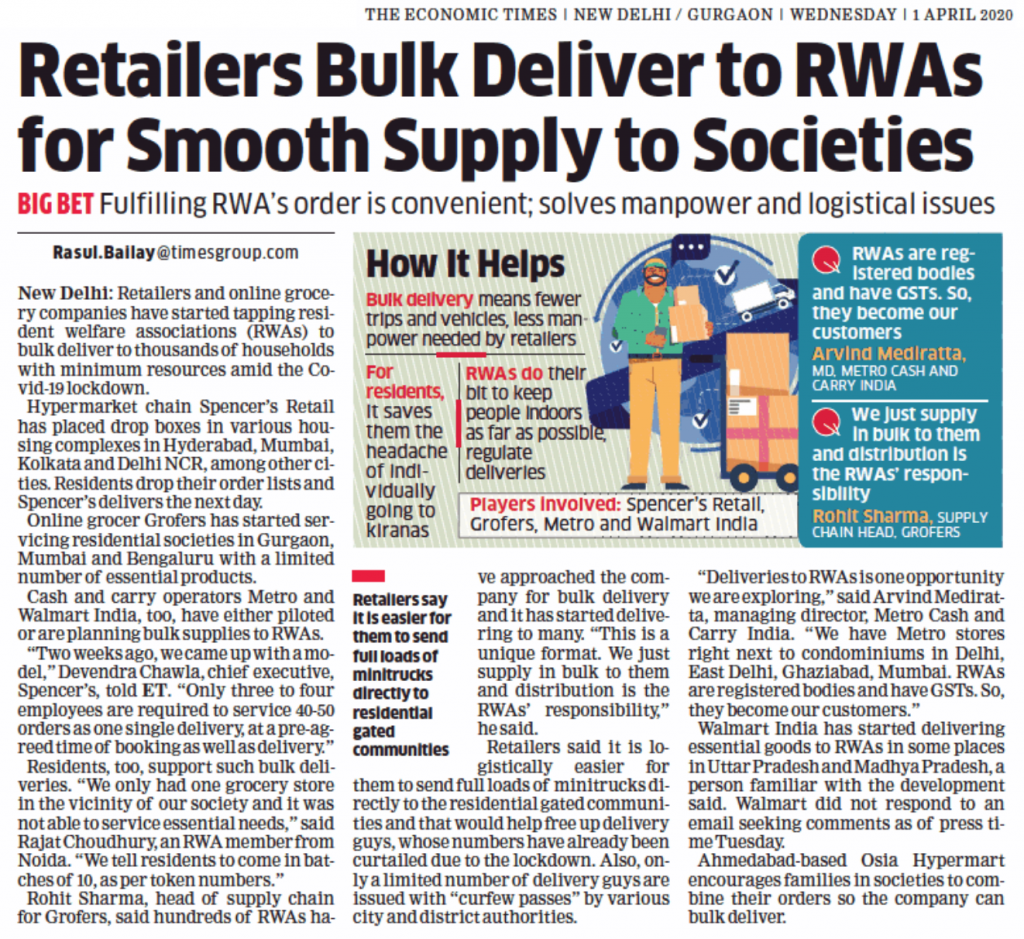
Interestingly, start-ups like CommonFloor and other apartment-management brands like MyGate, ApartmentAdda and ApnaComplex were supposed to be the ‘gatekeepers’ of RWAs in India. But these start-ups haven’t been able to harness RWAs as a channel of doing business with outside vendors, nor were those vendors considering these channels to begin with, content with their existing distribution system.
But, the existing distribution system has been disrupted due to the pandemic. And hence, those vendors have been forced to find another way to reach buyers. And RWAs seemed like the perfect way to get to individual apartments or houses within a housing community.
RWAs have encouraged vendors earlier too, but these were primarily either brands that used to advertise/promote/sample their products (we have had iD Fresh and MTR come to our earlier apartment complex to showcase their product range), or it got small/home-based product owners to sell their wares in the basement/party hall. Some apartments have their own grocery store inside the complex, while there are some start-ups that have taken the task of setting up a self-service product stand in complex.
This pandemic has, for the first time, exploited the potential of RWAs as a gateway to a full-fledged sales channel. Just like how I’d expect a Cult-fit to continue offering video-based subscription of sessions (possibly in addition to a hardware lease/sales of fitness equipment), I also expect this new behaviour of treating RWAs as a legitimate channel of distribution to stay and even flourish. The start-ups that manage entry or apartment administration could play a much bigger role by being the enabler of this trend.
